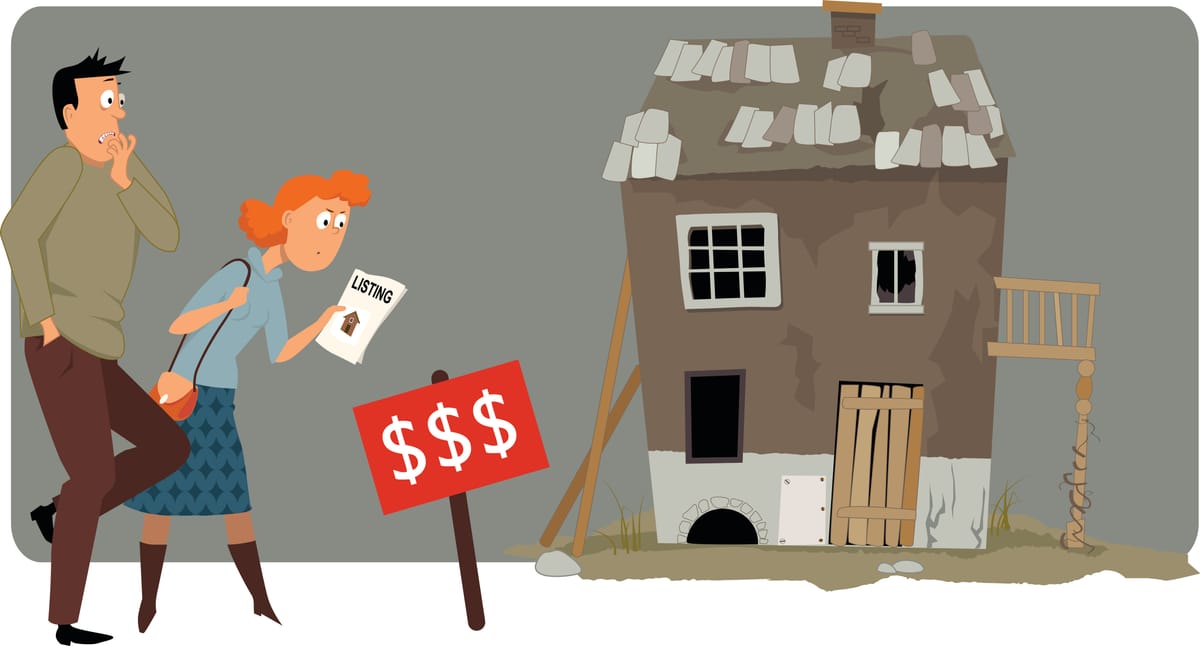Behind the Housing Crisis: A Story of Red Tape, Taxes, and Missed Opportunities

A Housing Dream Stalled by Inches
A client of mine had big dreams for a piece of land that she had acquired with her life savings. She wanted to build a duplex that she'd been planning for a very long time. It would create not just a home for herself but an income-generating property for her family’s future. The drawings were ready, and the finances were arranged. She could finally sense the dream coming together. Then, the bureaucracy stepped in.
The project was stalled—her duplex was eight inches too tall for municipal bylaws. Eight inches. That seemingly small detail forced her back to the drawing board, and instead of building a duplex, she ended up with a single-family home. One less housing unit was available in a market already starved for supply, and she lost the potential income she had planned for.
The Rise of Housing Costs
Canada’s housing market has been on an aggressive upward trajectory. Post-COVID, house prices didn’t just recover—they soared to unimaginable heights that no one saw coming. The country is now a very different place. It's as if the housing market had strapped itself to a rocket and blasted straight into space. And it doesn't seem like that rocket is returning to Earth anytime soon.
While rising house prices can sometimes indicate economic health, this surge differs. It's creating a divide between those who already own property and those struggling to buy their first home. The young couple saving for years only to find their dream of owning a home out of reach, or the growing family crammed into a small apartment because they can’t afford to upgrade—these are real stories playing out across Canada.
The Real Problem – A Lack of Supply
Canada has plenty of land. So why do we have a housing crisis? The answer lies in our inability to build fast enough to keep up with even modest population growth.
Immigration is often scapegoated, but it’s not the real issue. Canada’s birth rate is at a record low—1.3, well below the replacement rate of 2.1. Immigration isn’t just important; it’s essential for sustaining our economy and social systems. The real problem is that we’re simply not building enough homes to accommodate even a steady increase in population.
The Invisible Walls – Bureaucracy and Red Tape
Building codes are necessary—they ensure safety and quality. But over the years, they’ve become excessively complex. Architects now regularly hire consultants to interpret the codes. Even seasoned professionals struggle to navigate contradicting clauses.
Take energy regulations, for example. New requirements to insulate balcony junctions sound simple in theory but are incredibly complex in practice. For concrete buildings, this means completely detaching balconies from the structural slab—a feat so complicated that developers must use expensive proprietary products. The cost? It’s passed directly to the buyer.
Municipal bylaws add another layer of complexity. While some regulations make sense, others are rigid and outdated. As I saw with my client’s duplex project, even the most minor infractions can derail plans entirely. These delays aren’t just frustrating—they’re costly, both for developers and the families waiting for much-needed housing.
Being in the trenches, I see how municipalities hinder the much-needed housing supply, slowing the process down fivefold from what was only a few short years ago.
In addition, getting permits is a slow and unpredictable process. Cities often request arbitrary changes, like changing the railing color from black to grey. Developers increasingly abandon projects, and even individual homeowners face the same bureaucratic nightmare for simple construction builds.
The Cost of Taxes and Policies
If you haven't noticed already, Canada is a high-tax nation, which extends to the housing market. One particular example is the GST/HST self-assessment tax, which forces developers to pay sales tax on the market value of the projects they intend to rent out, amounting to hundreds of thousands of dollars in additional costs.
Essentially, they’re taxed on something they have created, not bought, contradicting what sales tax is all about to begin with. These costs often determine whether a project moves forward or is shelved. Most of the time, the buyer picks up the tab.
Rising property values mean higher property taxes, which municipalities rely on for revenue. In some cities, this creates a vicious cycle—municipalities benefit from high home prices, so there’s little incentive to address the supply shortage.
A Message for First-Time Homebuyers
If you’re a young person starting out in life, I won’t sugarcoat it—buying your first home in today’s market is incredibly tough if you cannot get help buying your first place to live.
Hopefully, the housing market will improve, but it will take some time. In the meanwhile, there are some strategies one can implement to navigate these challenging times. If possible, look at areas outside the most competitive markets, like Toronto and Vancouver. Smaller cities and regions across Canada often have more affordable options without sacrificing economic opportunities.
Be strategic in your search. Look for areas with potential for growth but where prices haven’t yet skyrocketed. Explore government programs designed to help first-time homebuyers, like tax credits or savings incentives.
Set realistic goals. You may need to compromise on size, location, or property type for your first purchase, but it’s a step toward building equity. Equity will make it much easier later on to get to the house that you actually want.
The Path Forward
The housing crisis is complex, but it’s not insurmountable. By cutting through the red tape, rethinking taxes, and encouraging smarter policies, we can create a future where housing is accessible to all Canadians again. With old-fashioned hard work, anyone should be able to afford a home.
It’s time for us to demand more from our leaders, no matter who's in charge. We need to hold our leaders accountable for real solutions and reforms that actually work. The housing market has always been Canada's backbone, and we must preserve it before it's too late.



